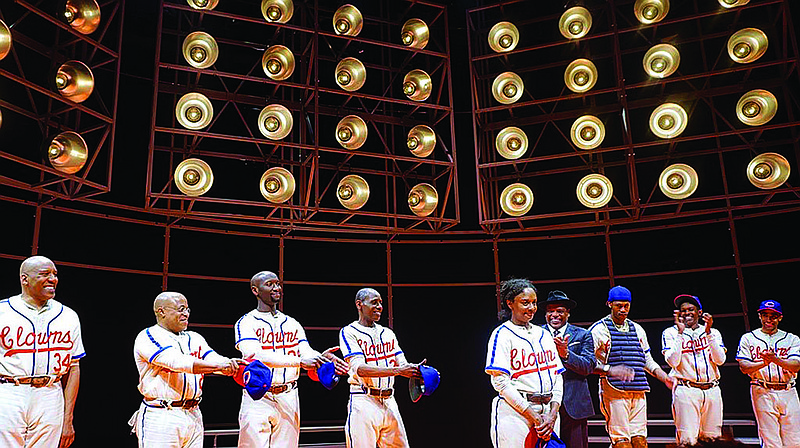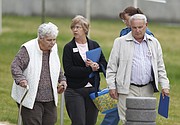For Texarkana native April Matthis, not just one Obie Award will do - no, she's now landed a second such honor, this time for performing as the first woman to play professional baseball.
The American Theatre Wing and The Village Voice honored Matthis recently during the 65th annual Obie Awards for her turn as Toni Stone, who was the first woman to ever play pro ball.
"For her tour de force performance, intellectual investment, and for unearthing history with a mastery of the craft ." the Obie Awards stated online in recognition of Matthis, adding, "This year, the actress who portrayed the first woman to play professional baseball for the Negro League in an era filled with harsh sexism, racism and Jim Crow seemed to actually alter the molecular structure of the air around her audience.""Toni Stone" was an Off-Broadway show presented by Roundabout Theatre from May to August last year, and Matthis is plenty appreciative to receive the recognition when so many theater stages remain silent because of the coronavirus pandemic. Obies are considered Off-Broadway's highest honor.
Stone, born in St. Paul, Minnesota, started out ambitiously as a ball player, trying to play with the boys at an early age. Former big league player Gabby Street gave her a chance with a minor league team he managed when she was just a teenager."He coached a group of white boys in Minneapolis, and she kind of infiltrated her way in and wouldn't stop. And so he finally gave in and gave her her first baseball shoes and glove," said Matthis, the only woman actor in the play.
By the 1950s, Stone made it all the way to play, briefly, for the illustrious Negro League outfit the Kansas City Monarchs after stints with the Indianapolis Clowns, New Orleans Creoles and San Francisco Sea Lions.
She was a true pioneer who endured abuse and acrimony during her time as a pro player, and Matthis sought to play her as a well-rounded character.
"What was really compelling to me was not just the historical facts of she was the first woman to play professional baseball in the Negro Leagues, but I have to say really how she was brought to life by Lydia Diamond, the playwright," Matthis said.
The actress, who won her first Obie five years ago, feels an affinity with the writer and her characterization of Stone. They share a quirky, nerdy sense of humor, she said - "and she put that into Toni."
In the play, Stone relates the story to the audience but also explains that she's an unreliable narrator who jumps in time and may not remember things exactly how they happened, said Matthis.
"There's a lot of humor in the character and a little bit of enterprising mischief," the actress said, explaining that often there's a tendency to write historical figures, even underrepresented characters, as "noble, perfect people."
"It's nice to be a flawed human being, too," Matthis said, noting Stone would play farm teams and pickup games as a teen, but when she played in semi-pro teams her age would suddenly be younger.
"That tidbit is fascinating to me," Matthis said. In the off-season, Stone would fabricate her experience to get jobs. "That just made her that much more interesting to me and also enterprising."
Though a skilled baseball player, Stone wasn't academically successful, coming from a well-to-do family living a middle-class black neighborhood where the parents owned a beauty shop, said Matthis.
"Toni struggled academically and so she was put in some kind of remedial school for learning, but she excelled in every sport and was reported to have an encyclopedic knowledge about baseball," Matthis said. "That was something that we highlighted in the play."
The play is based on the book "Curveball, The Remarkable Story of Toni Stone" by Martha Ackmann. For Matthis, she had rich material to work with while playing Stone.
Particularly at this time when the theater world is up in the air, reliving those production memories in celebration feels heartening to Matthis.
"It was great, of course, to have any kind of award, given where we are now in this COVID age, to be reminded that my theater community is still out there and remembers what I did a year ago and cares and values that work," Matthis said. "Because right now my acting is limited to what I can do on Zoom."



